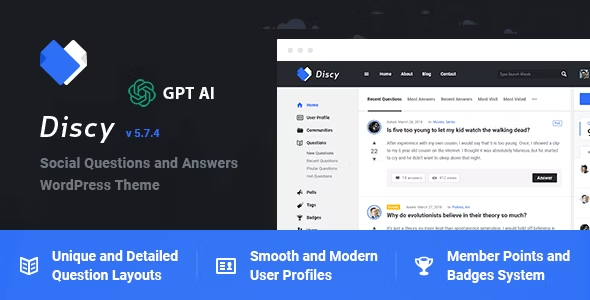Nitropack vs WP Rocket
| Feature/Aspect | Nitropack | WP Rocket |
|---|---|---|
| Type | All-in-one optimization service | WordPress-specific plugin |
| Platform Compatibility | Works on any platform | WordPress only |
| Setup and Installation | Simple, API key-based setup | Easy WordPress plugin installation |
| Caching | Advanced (dynamic, static, browser caching) | Page caching, cache preloading |
| CDN | Built-in CDN | CDN integration (Cloudflare, others) |
| Image Optimization | Automatic image compression | Lazy loading of images |
| CSS Optimization | Critical CSS generation | CSS minification and combination |
| JavaScript Optimization | Minification, delay JS loading | JS minification and combination |
| HTML Optimization | Minification | HTML minification |
| Lazy Loading | Included for images and iframes | Included for images and iframes |
| Database Optimization | N/A | Database cleanup (revisions, drafts, etc.) |
| GZIP Compression | Included | Included |
| Browser Caching | Included | Included |
| Automatic Updates | Yes | Yes |
| Pricing | Starts at $17.50/month | Starts at $49/year |
| Free Plan | Limited free plan available | No free plan |
| Support | 24/7 support via chat and email | Support via tickets |
| User Interface | Web-based control panel | WordPress dashboard |
| Ease of Use | Set-it-and-forget-it approach | User-friendly, with advanced options |
| Community and Resources | Smaller community, growing resources | Large community, extensive resources |
| Personal Control | Automated, less manual control | More manual control and customization |
| Real-World Performance | Significant speed improvements, especially for high-traffic sites | Consistent performance improvements for WordPress sites |
| Advanced Features | Critical CSS, advanced caching, built-in CDN | Lazy loading, database optimization, GZIP |
This table provides a detailed side-by-side comparison of Nitropack and WP Rocket,
So, you’ve got a website and you’re looking to make it faster, right? Speed is super important, not just for keeping your visitors happy, but also for SEO and ranking high on Google. Today, we’re diving into a head-to-head comparison of two popular speed optimization tools: Nitropack and WP Rocket. Grab a snack and get comfy because we’re going to cover everything you need to know!
What’s the Big Deal About Website Speed?
Before we dive into the nitty-gritty of Nitropack vs WP Rocket, let’s talk about why website speed is such a big deal. Imagine this: you’re visiting a website, and it takes forever to load. Annoying, right? Chances are, you’ll just leave and find a faster site. Studies show that if a site takes more than three seconds to load, people start to bounce. And by bounce, I mean they leave your site. That’s not good for business or your blog, or whatever you’re running.
Google also uses site speed as a ranking factor. So, if you want to show up on that coveted first page of search results, your site better be speedy. This is where tools like Nitropack and WP Rocket come into play. They help optimize your site to make it load faster. But which one is better? Let’s find out!
First Impressions: What Are Nitropack and WP Rocket?
Let’s start with a brief introduction to both tools.
Nitropack is an all-in-one optimization service. It’s not just a plugin; it’s a comprehensive service that works on any platform. It combines caching, a CDN (Content Delivery Network), image optimization, and more into one package. You don’t need to be a tech wizard to use it.
WP Rocket, on the other hand, is a WordPress-specific plugin. It’s super user-friendly and is often praised for its simplicity and effectiveness. It focuses on caching but also offers other features like lazy loading, database optimization, and minification of CSS and JavaScript.
Installation and Setup: Which is Easier?
When it comes to setting up these tools, ease of use is key. You don’t want to spend hours figuring things out, right?
Nitropack is relatively straightforward. You sign up on their website, and they guide you through the process. They provide a simple API key which you use to connect your site. Once it’s connected, Nitropack takes over and starts optimizing.
WP Rocket is a breeze to install if you’re familiar with WordPress plugins. You purchase it, download the zip file, upload it to your site, and activate it. The interface is clean and intuitive. Most of the settings are turned on by default, so you don’t have to tweak much unless you want to.
Performance: Speed and Optimization
Now, let’s get to the good stuff. How well do Nitropack and WP Rocket perform?
Nitropack claims to improve your site’s speed by up to 300%. It uses advanced caching techniques, a built-in CDN, and image optimization. Plus, it applies critical CSS, which helps your site load faster by only rendering above-the-fold content initially.
From personal experience, Nitropack did wonders for a friend’s e-commerce site. It reduced the load time from 5 seconds to under 2 seconds. That’s pretty impressive!
WP Rocket also delivers excellent performance improvements. It’s known for its effective caching. Additionally, it offers lazy loading, which means images load only when they come into the viewer’s viewport. This reduces initial load times significantly.
I’ve used WP Rocket on my own blog, and it consistently improved my PageSpeed Insights scores. My site went from a sluggish 4-second load time to a speedy 1.5 seconds.
Features: What Do They Offer?
Both tools come packed with features. Here’s a quick rundown.
Nitropack:
- Advanced Caching: Dynamic, static, and browser caching.
- Built-in CDN: Delivers content from servers closest to the user.
- Image Optimization: Compresses images without losing quality.
- Critical CSS: Prioritizes above-the-fold content.
- Minification: Reduces the size of CSS, HTML, and JavaScript files.
WP Rocket:
- Page Caching: Stores a static version of your site.
- Cache Preloading: Preloads the cache to ensure fast load times.
- GZIP Compression: Reduces file sizes for faster loading.
- Browser Caching: Speeds up returning visitors.
- Lazy Loading: Delays loading of images and iframes.
- Minification/Concatenation: Minifies and combines files.
User Experience: What’s It Like to Use Them?
Both Nitropack and WP Rocket are designed to be user-friendly, but they cater to slightly different audiences.
Nitropack is great if you want a set-it-and-forget-it solution. Once you set it up, it handles everything automatically. It’s perfect if you’re not very tech-savvy or just don’t want to deal with manual optimizations.
WP Rocket gives you more control. It’s easy enough for beginners but also has advanced options for those who want to tinker with settings. If you’re comfortable navigating WordPress and want to customize your optimization, WP Rocket is a solid choice.
Pricing: Which One Offers Better Value?
Pricing is always a big factor. Let’s break down the costs.
Nitropack has different pricing tiers based on the number of websites and the amount of traffic. Their plans start at around $17.50 per month for one website with up to 50,000 page views. They offer a free plan too, but it’s quite limited.
WP Rocket is a bit simpler. It’s a yearly subscription. The pricing starts at $49 per year for one website. They also offer plans for multiple sites, with the highest tier costing $249 per year for unlimited sites.
When it comes to value, it really depends on your needs. If you run a single site and want a hassle-free solution, Nitropack might be worth the extra cost. However, if you’re managing multiple sites, WP Rocket offers a more cost-effective solution.
Support and Community: Who’s Got Your Back?
Customer support is crucial, especially if you run into issues.
Nitropack offers 24/7 support through chat and email. They also have a comprehensive knowledge base with guides and tutorials. From my experience, their support team is responsive and helpful.
WP Rocket also provides excellent support. They offer support through tickets and have a vast knowledge base. Additionally, because WP Rocket is so popular, there’s a large community of users. You can find plenty of forums, blog posts, and videos with tips and tricks.
Personal Anecdotes and Final Thoughts
I remember the first time I used Nitropack. I was skeptical. I thought, “Can it really make that much of a difference?” But when I saw my site’s load time drop drastically, I was blown away. It felt like magic.
On the flip side, WP Rocket has been a trusty companion for my WordPress sites for years. It’s reliable, easy to use, and consistently delivers results. I love how it gives me control over every aspect of optimization without overwhelming me with too many options.
In the end, the choice between Nitropack and WP Rocket comes down to your specific needs and preferences. If you’re looking for a powerful, hands-off solution that works across different platforms, Nitropack is fantastic. But if you’re a WordPress user who wants a user-friendly plugin with great support and community, WP Rocket is hard to beat.
Conclusion: What’s Your Pick?
So, there you have it. A detailed comparison of Nitropack vs WP Rocket. Both tools are excellent in their own right. They have their strengths and cater to slightly different audiences. I hope this guide helps you make an informed decision.
Remember, the best tool for you is the one that fits your specific needs. Think about your technical skills, budget, and the level of control you want over your site’s optimization. No matter which one you choose, you’re on the right track to making your website faster and better for your visitors.
What’s your experience with these tools? Have you used Nitropack or WP Rocket? I’d love to hear your thoughts and stories in the comments below!










发表评论